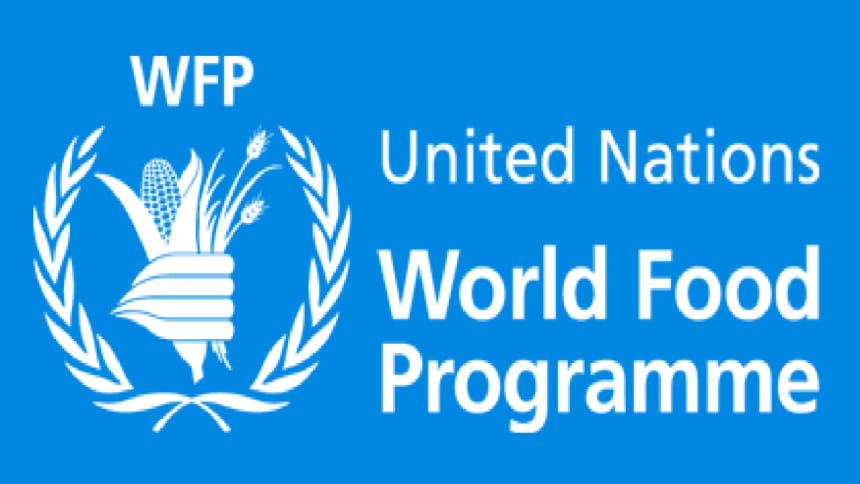World on brink of ‘hunger pandemic’

The world is facing widespread famine "of biblical proportions" because of the coronavirus pandemic, the chief of the UN's food relief agency has warned, with a short time to act before hundreds of millions starve.
The bleak warning came as deaths from the virus surpassed 180,000 worldwide yesterday, with governments anxiously trying to chart a path out of the unprecedented global health and economic emergency. Nearly 2,600,000 people have been infected.
The virus has exposed the vulnerability in the health care systems of the most advanced nations and it is widely feared to wreck more havoc on developing and poor ones. What appears to be certain is that the economic disaster following in the wake of the pandemic will lead to huge strain on resources.
Debates are raging worldwide over when and how to relax lockdowns imposed to prevent the spread of the highly contagious virus. Many leaders fear triggering another wave of infections by doing so but are also worried about the mounting economic costs and signs of social tension.
"We are on the brink of a hunger pandemic," WFP director David Beasley told the UN Security Council in a video conference on Tuesday.
Even before the pandemic hit, parts of East Africa and South Asia were already facing severe food shortages caused by drought and the worst locust infestations for decades.
"We could be facing multiple famines of biblical proportions within a short few months," he said. "The truth is we do not have time on our side."
The worst-case scenario could see famine in some three dozen countries, Beasley said.
The impact of lost tourism revenues, falling remittances and travel and other restrictions linked to the coronavirus pandemic are expected to leave some 130 million people acutely hungry this year, adding to around 135 million already in that category.
"COVID-19 is potentially catastrophic for millions who are already hanging by a thread," said Arif Husain, chief economist and director of research, assessment and monitoring at WFP.
"It is a hammer blow for millions more who can only eat if they earn a wage," he said in a statement. "Lockdowns and global economic recession have already decimated their nest eggs. It only takes one more shock - like Covid-19 - to push them over the edge. We must collectively act now to mitigate the impact of this global catastrophe."
WFP expects to need $10-$12 billion to fund its assistance programmes this year compared to a record $8.3 billion raised last year, Husain added. It plans to pre-position food stocks over the coming months in anticipation of growing needs.
Meanwhile, a World Bank report yesterday said pandemic-hit developing nations' economies would suffer another blow as remittances are expected to plunge by about 20 percent globally this year.
"Remittances are a vital source of income for developing countries," World Bank Group President David Malpass said in a statement. "The ongoing economic recession caused by COVID-19 is taking a severe toll on the ability to send money home and makes it all the more vital that we shorten the time to recovery for advanced economies."
In some countries, payments from workers abroad amount to a quarter or even one-third of GDP, including South Sudan, Haiti, Nepal, Kyrgyz Republic, Tajikistan, Montenegro and Tonga.
As the WFP warned of potential famine, Group of 20 agriculture ministers pledged to ensure "sufficient" global food supplies for "the poorest, the most vulnerable, and displaced people."
But the global markets, on which the severity of the crisis will depend, remain under intense pressure because of the pandemic. Extraordinary stimulus measures worth trillions of dollars gave some boost to stock markets, but have failed to lift the overall mood on trading floors.
Like with the food crisis warning from the WFP, the biggest impact of the loss of jobs and the overall economic downturn is being felt by the most disadvantaged.
They include the millions of migrant workers from South Asia and elsewhere that toil in the Middle East to send money back home to their families.
'Ungovernability in many nations'
Meanwhile, the World Health Organization's COVID-19 special envoy warned that people in poor nations would lose faith in authorities without effective action to combat the fallouts from the pandemic.
Special envoy David Nabarro on Tuesday said if poor nations fail to combat the coronavirus pandemic because they cannot access enough resources, the world could see "ungovernability in many nations".
"(If) people lose faith in the capacity of their leaders to lead ... this will lead to ungovernability in many nations throughout our world," said Nabarro, who also served as the United Nations special envoy on Ebola.
He said as the virus moved into poorer nations in regions such as Africa, many countries were struggling to find funding, protective equipment, and tests to combat the pandemic.
He called for more global cooperation and aid to weaker countries to help them combat a health crisis "nothing like anything else we've ever seen in my professional life".
The alternative, he said, is that "the rich get richer, the poor get poorer, and global solidarity falls apart".
Thomas Hale, a global public policy professor and political scientist at the University of Oxford, said the pandemic had shown how ill-prepared countries are to work together on global threats - a concern as the impact of climate change worsens.
"What scares me most about COVID-19 is not the disease itself but how it's shown the fragility of some of our global and national governance systems," Hale said.

 For all latest news, follow The Daily Star's Google News channel.
For all latest news, follow The Daily Star's Google News channel. 



Comments